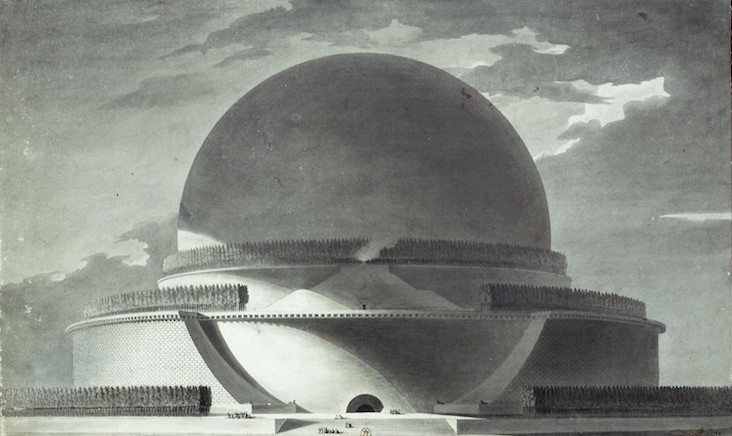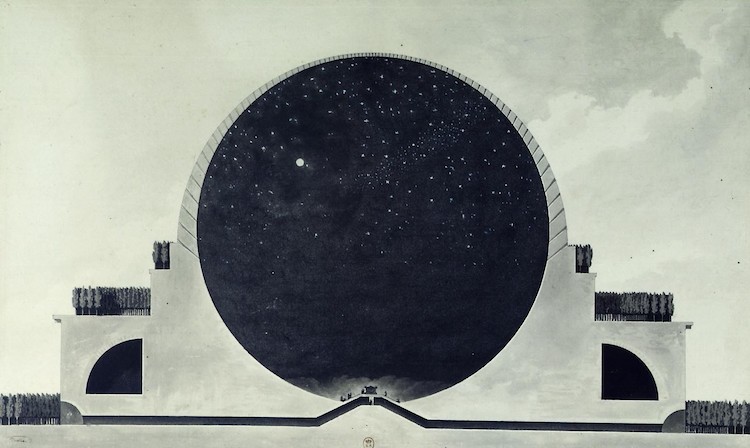The scale of Étienne-Louis Boullée’s cenotaph for Sir Isaac Newton is enormous. The sphere alone has a diameter of 500 feet. Cypress trees, symbols of mourning, circle the monument on three levels, tightly spaced. A cenotaph is a monument honoring a person whose remains lie elsewhere.
Boullée was the son of an architect, a brilliant student who went on to teach and become a first-class member of Royal Academy of Architecture in Paris. It is late eighteenth century. Neoclassicism was in full bloom and ideas of the Enlightenment were in the air.
Holes are cut in the exterior to simulate inside the points of light of stars in the universe, the interior otherwise black:
At night a central hanging light illumines:
O Newton! With the range of your intelligence and the sublime nature of your Genius, you have defined the shape of the earth; I have conceived the idea of enveloping you with your discovery. That is as it were to envelop you in your own self.
Boullée says about his monument in a treatise.
The cenotaph rests on a solid foundation, a belief in reason and basic truths and the truth of basic forms, in an orderly fitting together of parts, the power of architecture to reform. It was never built, however, because practically it was unfeasible. Boullée was a visionary.
The French Revolution was around the corner.
Postmodernists took a liking, for a while.
Almost no one was there the day we went, so we had it to ourselves. We climbed the broad stairs and entered through a round opening, large yet still dwarfed by the sphere. Then we walked through a long tunnel that took us to the interior, to the center, where rested the empty sarcophagus. We glanced at the sarcophagus, then looked up at the stars.
Newtonian physics still works well enough for us, day to day. Of course the universe is expanding, of course it is made of stuff we only somewhat understand, but we were content to see it fixed on the ceiling and we spent the rest of the day enveloping ourselves in ourselves and each other, reaching out into a space that seemed endless.
Night, when the light went on, we were blinded.



